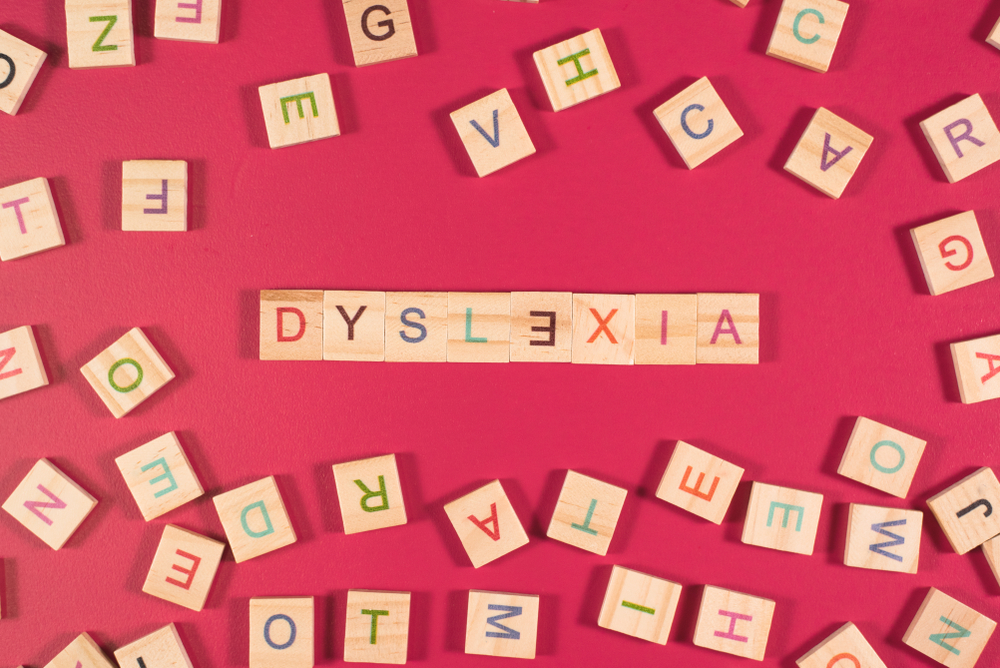Analytical skills Normal Worksheets for 3-Year-Olds
4 filtered results
-
From - To
Boost your child's critical thinking abilities with our "Analytical Skills Normal Worksheets for 3-Year-Olds." Designed by educational experts, these fun and engaging worksheets help little learners develop important analytical skills through a variety of colorful and stimulating activities. Children will enjoy exercises such as matching, sorting, and identifying patterns, which all promote cognitive development and problem-solving skills. Perfectly tailored for curious 3-year-olds, these worksheets provide a solid foundation for future learning in an enjoyable and interactive way. Bring out the best in your child’s analytical thinking with these expertly crafted resources from Kids Academy!
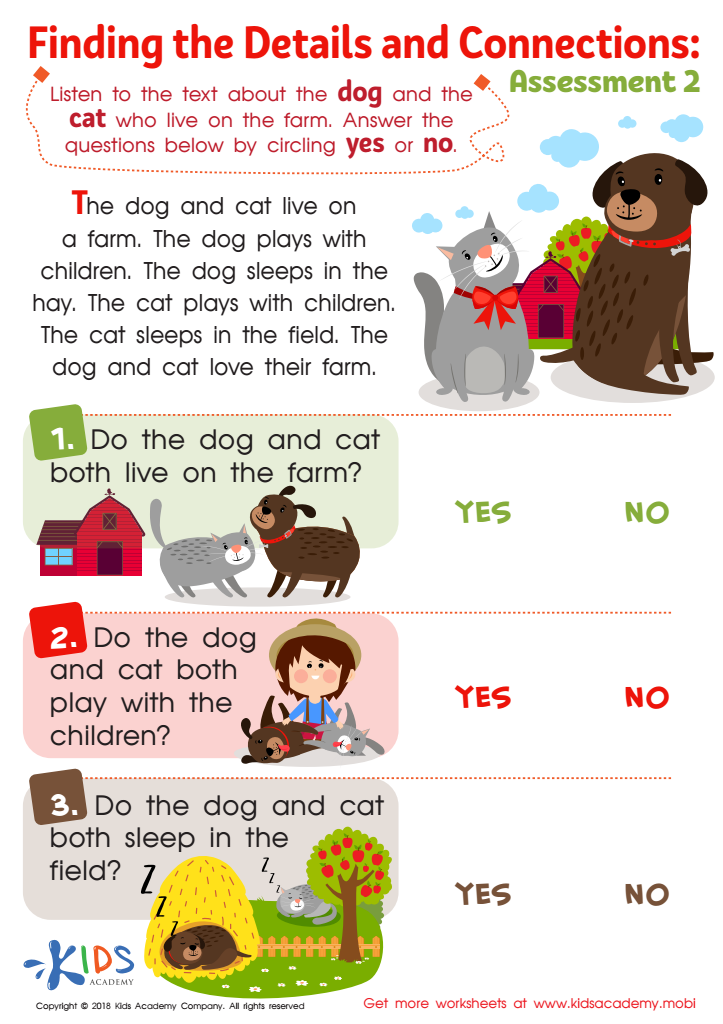

Finding the Details and Connections: Assessment 2 Worksheet
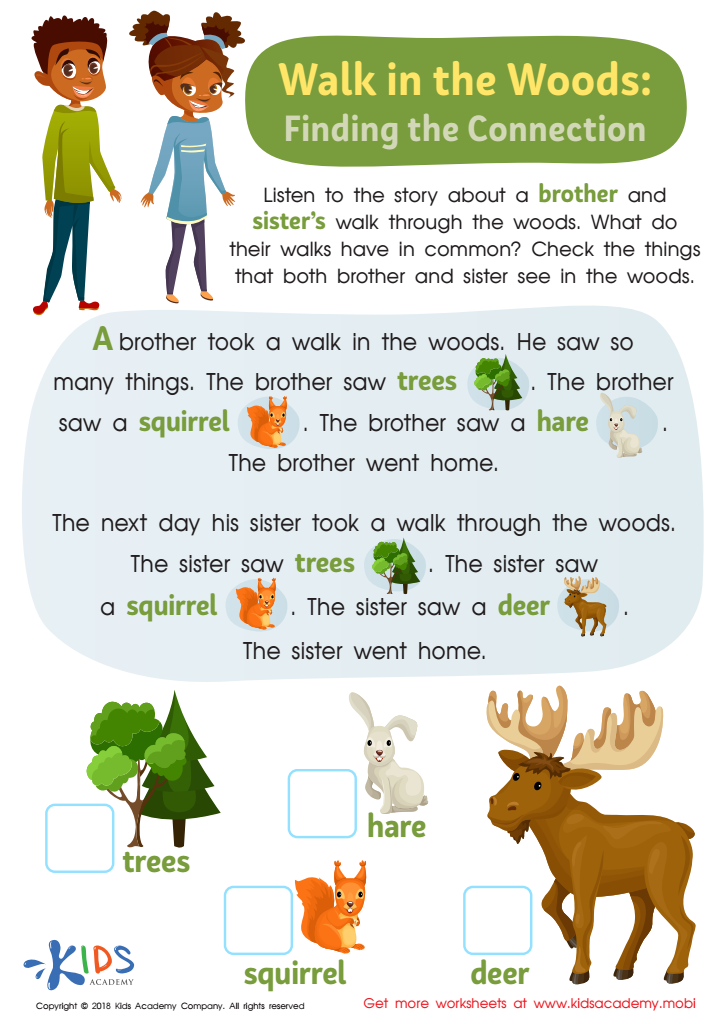

Walk In the Woods: Finding Connections Worksheet
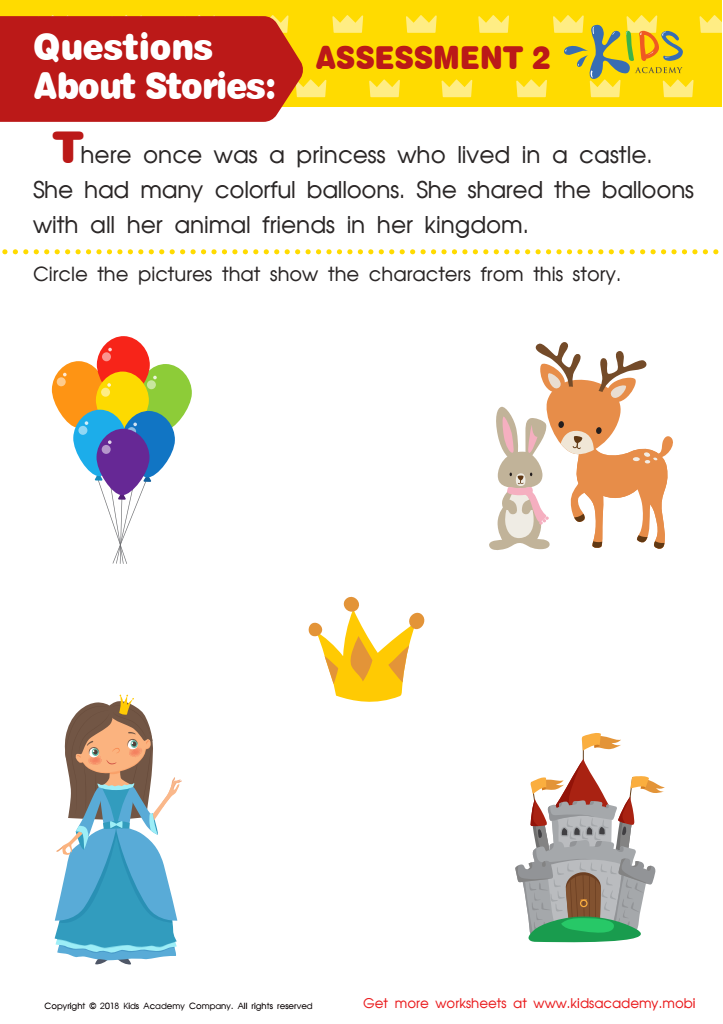

Questions About Stories: Assessment 2 Worksheet
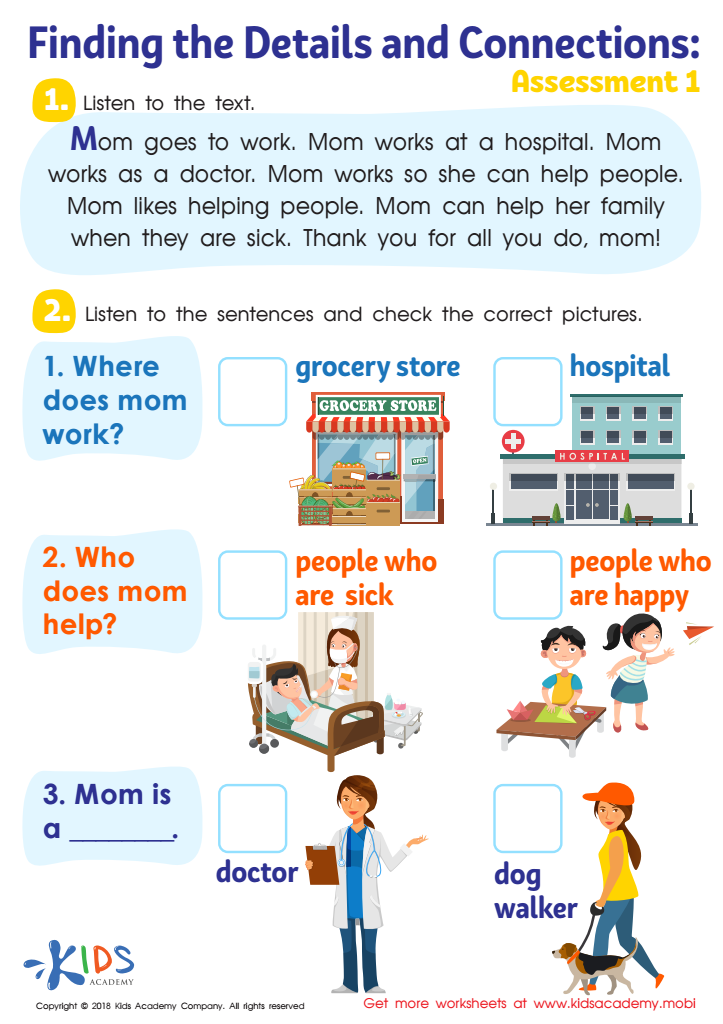

Finding the Details and Connections: Assessment 1 Worksheet
Parents and teachers should care about the development of analytical skills in 3-year-olds because these skills are foundational for critical thinking, problem-solving, and decision-making processes later in life. At this age, children are naturally curious and begin to explore their surroundings. Encouraging analytical skills helps them understand relationships between objects, classify items, and comprehend simple cause-and-effect scenarios. This early development fosters cognitive growth and sets the stage for academic success in subjects like math, science, and reading comprehension.
Moreover, proficiency in analytical skills aids in the development of social abilities. When children analyze their environment, they also interpret social interactions, recognize patterns in behaviors, and learn emotional responses. This understanding enhances their ability to communicate effectively, resolve conflicts, and develop empathy.
Fostering these skills can be as simple as providing age-appropriate puzzles, engaging in open-ended play, asking thought-provoking questions, and reading interactive stories. Such activities stimulate a child's brain, making learning both enjoyable and beneficial. Consequently, attention to and support of analytical skill development in their early years actively contribute to a well-rounded, capable, and intellectually curious individual. By prioritizing these skills from a young age, parents and teachers invest in the long-term cognitive and emotional well-being of their children.
 Assign to My Students
Assign to My Students


